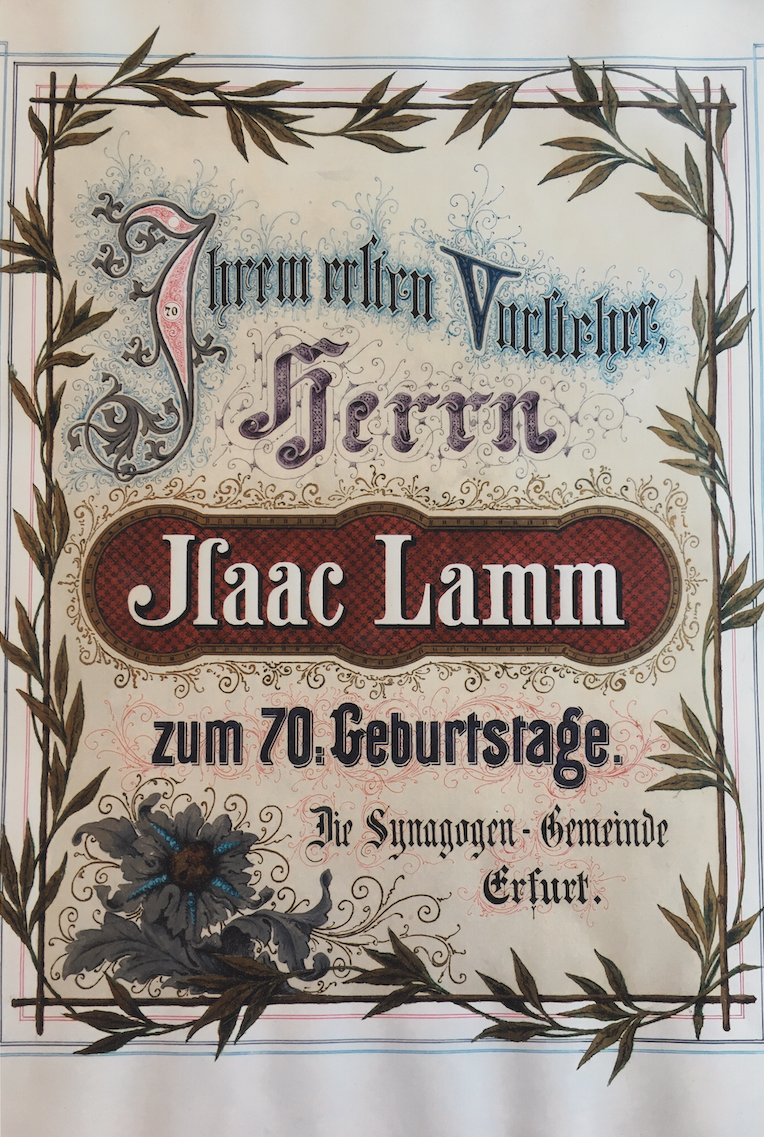The Organ

Festschrift put out by the synagogue congregation in honor of their chairman Isaac Lamm on his 70th birthday, 1895 © Erfurt Municipal Archives
This organ was used to accompany the worship services. Its installation represented a reform of great symbolic force. There are no organs in orthodox synagogues. The granting of equal legal status to Jews in the nineteenth century led to liberalization in many Jewish communities. When they reformed their worship practices, they also adopted elements of Christian worship such as the organ.
In Erfurt, modernization tendencies had already been evident in the dedication of the little predecessor synagogue in 1840. At the dedication ceremony, the rabbi preached in German for the first time and a choir performed. During the process of planning the Great Synagogue, many members called for further changes. They proposed the installation of an organ, the employment of an organist, and a joint women’s and men’s choir. The congregation also changed its worship services – from now on, the sermon was to be held in German.
Conflicts
These proposals let to internal conflicts, as not all members of the congregation shared the liberal positions. Dr. Theodor Kroner, who had just taken office as rabbi in Erfurt, also spoke out against the reforms. Roughly ten orthodox families resolved to hold their worship services elsewhere, and not contribute to financing the synagogue. The congregation faced the threat of schism and the failure of their construction project. Efforts to find a compromise were ultimately successful. The orthodox families returned to the synagogue. The congregation certainly also had Isaac Lamm – the chairman at the time – to thank for the fact that it managed to bring about gradual reform without endangering its unity. Lamm was on the synagogue board from 1863 until his death in 1905, including several decades as its chairman. On the occasion of his 70th birthday in 1895, the synagogue put out a commemorative publication honoring him for the great services he had rendered to the congregation. He also played an important role in the town economy. The prominent manufacturer is today considered the founder of the Erfurt ladies’ coat industry.
(Kopie 1)
Prelude No. 1: Andante Maestoso for Rosh Hashanah by Lewandowski
© Widder Musik Productions GmbH